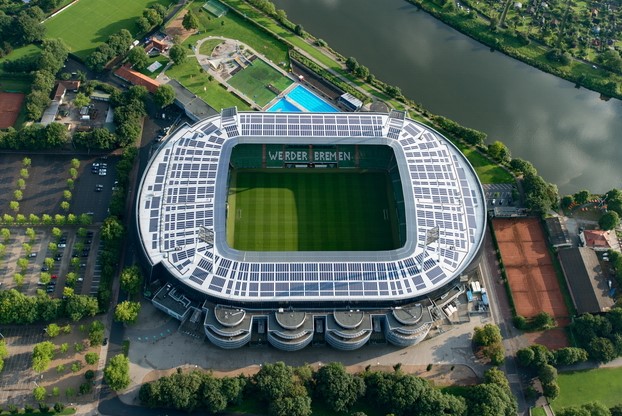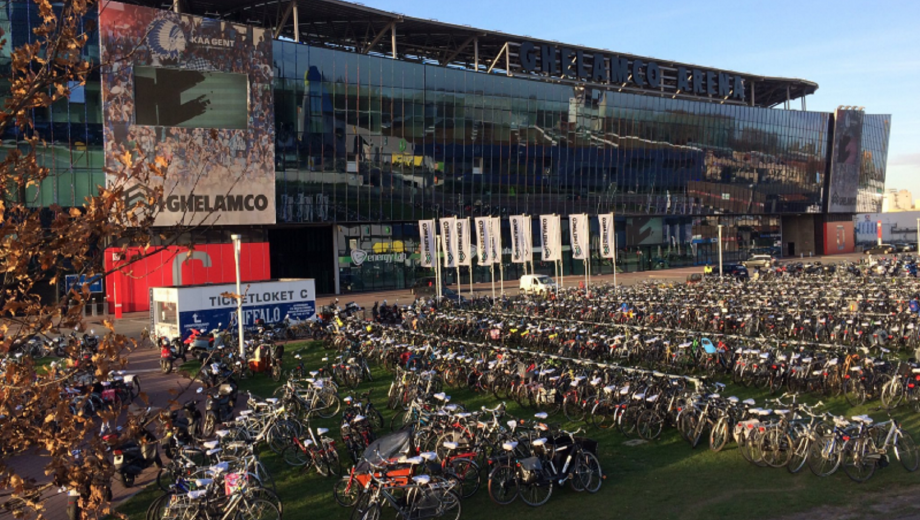Earth Day – Football clubs and Environmental Sustainability
April 22 marked an important date for environmental protection around the world: International Earth Day. To commemorate this special occasion, we looked at football clubs who are committed to protect the environment and who raise awareness of environmental sustainability.
Earth Day is a yearly event celebrated worldwide on April 22. Various worldwide events are held to demonstrate support for environmental protection. First celebrated in the United States in 1970, the event quickly gained much support and became international in 1990. Since then, Earth Day events are celebrated in more than 193 countries each year and coordinated globally by the Earth Day Network.
April 22 is also the date the United Nations officially recognised as the International Mother Earth Day. Established in 2009, this provides an opportunity to raise public awareness around the world to the challenges regarding the well-being of the planet and all the life it supports.
More importantly, April 22 provides an opportunity to reflect upon the Sustainable Development Goals. The 2030 Agenda for Sustainable Development stated that sport is an important enabler of sustainable development. We believe that football is a powerful tool that can tackle challenges entailed in each SDG, especially in having affordable and clean energy, achieving responsible consumption and protection and climate protection. For more information on the SDGs, click here.
Football clubs and environmental protection
A growing number of European football clubs are committed to improve their environmental impact and influence by either making their stadiums more sustainable or starting special initiatives to raise awareness on environmental sustainability. Here are a few examples from EFDN members:
Green stadium
For many football clubs, one of the best ways to protect the environment is to transform their home stadiums into eco-friendly venues with modern technologies and environmentally-conscious guidelines.

EFDN members Werder Bremen, Feyenoord Rotterdam, AFC Ajax and Aston Villa use green power and renewable energy for their stadiums. Werder Bremen‘s Weserstadion is well-known for its state-of-the-art photovoltaic system, with a total of 200,000 solar cells covering the roof of the stadium. The system, with a solar capacity of 1.2MW, can produce enough energy to power 400-500 houses a year.
Another club using solar energy is AFC Ajax with 4,200 solar panels on the roof of the Johan Cruyff ArenA. This futuristic stadium also uses Dutch wind energy to provide its remaining electricity needs. In addition, the ArenA is heated with urban heat from the local suburb, is cooled with water from a nearby lake, and features 100% renewable seats from sugarcane. These innovative technologies help the stadium to reach the net climate-neutral status – having a net zero carbon footprint. Also Aston Villa’s Villa Park was certified as completely carbon neutral in 2013.
In 2017, Feyenoord Rotterdam started their environmental startegy by signing a 4-year sponsorship agreement with green electricity supplier Qurrent. This resulted in the Feyenoord stadium running entirely on 100% Dutch green energy since Feyenoord’s first home match of 2018 on January 28. The partnership ensures savings of around 3.7 million kg of CO2 per year, a major impact on better air quality and climate.
Clubs like VFL Wolfsburg and Tottenham Hotspur have also taken important steps in recycling materials and especially minimalising the use of plastics in the stadium. VfL Wolfsburg banned plastic bags in 2015 and replaced them with paper bags made from 100% recycled paper, as well as only using re-usable cups. Tottenham Hotspur is committed to phasing out single-use plastics across all Club operations and requires from all new suppliers tha they reduce single-use plastics as well. Tottenham’s new stadium will also eliminate use of plastic straws, stirrers, cutlery and all plastic disposable packaging. Supporters’ club members will be given see-through Bag for Life that will be encouraged to be used on matchdays.
Green initiatives
Outside the stadium, football clubs are starting to have unique projects to raise awareness of protecting the environment. Scottish EFDN members, Morton in the Community and Motherwell FC Community Trust, receive funding from Keep Scotland Beautiful – Climate Challenge Fund (CCF) to develop Greener Morton and Greener Well. Both projects aim to raise awareness of carbon emissions and climate change in their local community and reduce carbon footprint and energy consumption. Highlights are:
- Carbon Literacy Trail: For 6 weeks, coaches from Morton in the Community visit primary schools to introduce young students to carbon emissions and climate change through Eco workbooks and football activities.
- Eco Fun Day: Launched in 2016, the Greener Morton FREE Eco Fun Day aims to raise awareness of climate change. During the event, information concerning the topics of recycling correctly, up-cycling and public transport were provided to the public. Additionally, the club asked participants of the FREE Eco Fun Day to bring along old kit and boots for recycling.
- Car Share and Walk to School: Motherwell FC Community Trust has a unique car sharing initiative for children attending the community coaching programme at the club’s Fit Park Stadium, and a walking scheme that will see children walking to schools on a weekly basis supervised by road-safety-trained community coaches.
Keeping the local area is also important for the Rangers Charity Foundation, as the charity organised a community clean-up around the Ibrox Stadium during this year’s #Morethanfootball Action Weeks. Activities include picking up litter from the streets around the stadium, helping identify areas that require extra care and attention. Volunteers will get the chance to meet a First Team player in the future by becoming a part of the Foundation’s True Blue Hero programme.
 Lastly, KAA Gent supports environmental protection by encouraging its supporters to bike to the stadium on match days as a way to care about the environment, instead of going by car or other motorised vehicles. The strategy has proven to be well accepted among fans. Every game, around 1,500-2,500 supporters are taking their bicycles to cycle to the Ghelamco Arena, or even 3,500 when there is an important match. For a success implementation, the club, together with the city and other partners ensured that around 2,850 bicycle racks were installed. Additionally, the cycle paths around the arena were properly developed. KAA Gent’s active travel strategy has officially been recognised by EFDN’s partner, Healthy Stadia.
Lastly, KAA Gent supports environmental protection by encouraging its supporters to bike to the stadium on match days as a way to care about the environment, instead of going by car or other motorised vehicles. The strategy has proven to be well accepted among fans. Every game, around 1,500-2,500 supporters are taking their bicycles to cycle to the Ghelamco Arena, or even 3,500 when there is an important match. For a success implementation, the club, together with the city and other partners ensured that around 2,850 bicycle racks were installed. Additionally, the cycle paths around the arena were properly developed. KAA Gent’s active travel strategy has officially been recognised by EFDN’s partner, Healthy Stadia.



